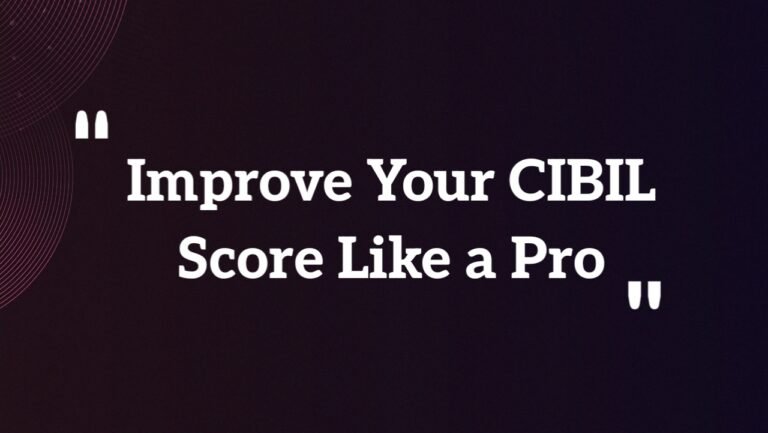Your CIBIL score is a big deal when it comes to getting loans, credit cards, or even better interest rates. A higher score shows lenders you’re reliable, but boosting it can feel tricky. Don’t worry—this guide breaks down simple, effective steps to improve your CIBIL score like a pro. Let’s dive in!
Pay Your Bills on Time
Late payments can hurt your CIBIL score fast. Set reminders or use auto-pay for credit card bills, EMIs, and other dues. Even one missed payment can stay on your report for years, so make timeliness a priority to build a solid payment history.
Keep Your Credit Utilization Low
Your credit utilization ratio—how much credit you use compared to your limit—matters. Aim to use less than 30% of your available credit. For example, if your card limit is ₹1,00,000, keep your balance below ₹30,000. This shows lenders you’re not over-relying on credit.
Check Your Credit Report Regularly
Errors on your CIBIL report can drag your score down. Get your free report once a year from CIBIL’s website and look for mistakes, like wrong balances or accounts you didn’t open. Dispute any errors promptly to keep your report accurate.
Clear Outstanding Debts
High debt levels can signal risk to lenders. Focus on paying off smaller debts first, like overdue credit card balances. Create a budget to chip away at larger loans steadily. Reducing your debt load boosts your score and eases financial stress.
Avoid Applying for Too Many Loans
Every loan or credit card application triggers a hard inquiry, which can slightly lower your score. Space out applications and only apply for credit you need. Too many inquiries in a short time can make you look desperate for credit.
Maintain a Healthy Credit Mix
A mix of secured (like home or auto loans) and unsecured (like credit cards) credit can help your score. It shows you can handle different types of credit responsibly. But don’t take on unnecessary debt just to diversify—balance is key.
Keep Old Accounts Active
Closing old credit accounts can shorten your credit history, which may hurt your score. Even if you don’t use an old credit card, keep it open with occasional small transactions. A longer credit history looks better to lenders.
Pay More Than the Minimum
Paying only the minimum on your credit card keeps you in debt longer and racks up interest. Try to pay the full balance each month, or at least more than the minimum. This reduces your debt faster and signals good financial habits.
Seek Professional Advice if Needed
If your score isn’t budging or you’re in deep debt, consider a credit counselor. They can offer tailored advice or debt management plans. Look for reputable agencies to guide you without falling for scams promising quick fixes.
Be Patient and Consistent
Improving your CIBIL score takes time. Stick to good habits like timely payments and low credit use, and you’ll see progress. Check your score every few months to track improvements and stay motivated.
Raising your CIBIL score doesn’t have to be complicated. By paying on time, managing credit wisely, and checking your report, you’ll build a score that opens doors to better financial opportunities. Start today, and watch your credit shine!
